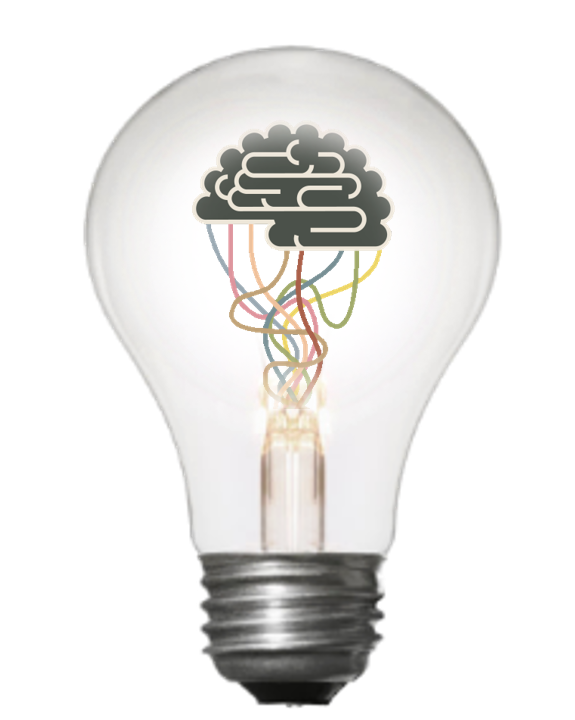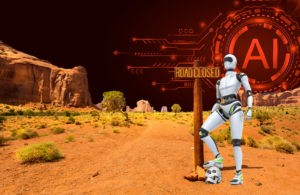Whether you call it the Digital Age or the Information Age, we live in an era in which data and cognitive computing are playing important roles. One essential element businesses need in this age, as in ages past, is innovation. Logically it follows that data and cognitive computing should play an important in today’s innovation. To find out whether this syllogism is true, futurist Andrew Keen (@ajkeen) asked Hilary Mason (@hmason), founder and chief executive of the data science and machine learning consultancy Fast Forward Labs, for her opinion. He writes, “Mason — who sees ‘AI’ as the ‘umbrella term’ to describe ‘machine learning’ and ‘big data’ — acknowledges that it has become a ‘very trendy’ area of start-up activity. That said, she says, there has been such rapid technological progress in machine learning over the last five years to make the field ‘legitimately exciting’. This progress has been so profound, Mason insists, that it is making AI ‘close’ to the heart of our new innovation economy.”[1] Whether you call it “AI” or “cognitive computing” or “machine learning,” the bottom line remains the same — smart machines are going to play an important innovation role in the years ahead.
Big Data and Innovation
Mason correctly highlights the symbiotic relationship between big data and artificial intelligence. It is no coincidence AI (particularly machine learning) has progressed so quickly with the increase of data generation. When it comes to innovation in the digital age, Nandakumar insists you must add the Internet of Things (IoT) to Big Data and cognitive computing. He writes, “There are several important aspects in industries and businesses that are mounting with the help of Big Data [and the IoT] thus creating value and innovation in businesses.”[2] They:
- Build instantaneous connection
- Aim at exceeding customer expectations
- Enhance data storage
- Drive transformation
- Revolutionize the information ecosystem
Ravindra Savaram (@s11ravindra), a Content Contributor at Tekslate.com, believes big data has the potential to create disruptive innovations.[3] He draws from the work of Harvard Business School professor Clayton Christensen noting disruptive innovations must possess the following three characteristics when compared to their existing counterparts. They must be:
- More accessible (with respect to distribution or usability)
- Cheaper (from a customer perspective)
- And utilize a business model with structural cost advantages (with respect to existing solutions)
Savaram asserts, “The reason why the above characteristics of disruption are important is that when all 3 exist, it is very difficult for an existing business to stay in competition.” His larger point is big data can help create disruptive innovations. He explains, “The disruptive innovation coming from big data are big data analytics processes and technologies.” Of course, as Savaram points out, it’s not the data it’s data analysis and subsequent actions that create disruptive innovation.
Cognitive Computing and Innovation
Cognitive computing platforms are ideal for turning data into insights and/or action. They can gather, integrate, and analyze both structured and unstructured data. They can generate actionable insights. And they optimize and/or automate processes. In other words, they are agile, adaptable, and flexible. Craig Holmes, a vice president for Cognitive Solutions at IBM states, “Organizations must realize that having the drive to be a disruptor is not enough; they need to create an environment that allows them to push the boundaries. One of the challenges facing businesses to truly change into agile and flexible IT infrastructure is the IT environment. Features such as cloud platforms, the ability to integrate structured and unstructured data in real-time, and the use of intelligent systems sit at the center of this change.” The Enterra Solutions® entry in this field is the Enterra® Enterprise Cognitive System™ (ECS) — a system that can Sense, Think, Act and Learn®. All of those capabilities are essential for innovative in today’s rapidly changing environment.
Susan Feldman (@susanfeldman), an author and cognitive computing expert, asserts, “Innovation is perhaps the biggest test of a knowledge management system.”[4] She says innovation almost always begins with a problem to solve and she goes to assert that most innovation solutions draw on existing knowledge brought together in a new way sometimes creating new knowledge. “Game-changing innovations occur at the boundaries between subjects and organizations,” she states. “It’s a group effort rather than an individual one. Developers, users, partners, and colleagues all have a part in it because they provide not just the ideas but also the need that spurs the innovator to solve a problem. It tends to occur at the lower levels of organizations. Those of us who are at the top of the organization, beware. It may disrupt industries or companies for good or ill and it is both risky and rewarding. That’s innovation.” Frans Johansson labels this kind of collaboration “the Medici Effect.” The effect is named after a wealthy and powerful Italian family that played an important role during the Renaissance. The family’s wealth permitted it to support artists, philosophers, theologians, and scientists, whose combined intellect helped burst the historical pall known as the Dark Ages. Cognitive computing technologies can create their own kind of Medici Effect by drawing on material from diverse fields. Feldman puts it this way: “Discovery and uncovering are key to innovation, because what we want is to find out what we don’t know so we can invent it.” She continues:
“The role of information access and analysis tools in this case is to improve exploration and discovery, to introduce related information. Although we want related information, we don’t want all the information in the world. How do we manage to promote those happy accidents without burying the searcher? We have to help with the information-finding process to eliminate queries perhaps in favor of exploration of some sort. … This is where our traditional systems … fall down, in helping the user to frame the question broadly, helping the user understand how to ask for the information they need if they don’t know they need it. We used to have knowledgeable intermediaries who did a lot of this, but that’s not what’s happening today. The tools have to help us understand and discover unexpected relationships across all sources of information. They need to search on a concept level rather than on keywords because those are also limitations. They need to unite multiple sources of information no matter what format they’re in or where they reside. They need to collect and share and discuss. They need to enable information and people to interact in one place. Then of course they need to save us time so that we can look at enough information in order to have those ideas. That tools that have started to emerge over the last couple of years are key to supporting these expanded roles for knowledge management. Cognitive systems are the next logical step.”
I’m a big believer in human/machine collaboration and there is no better arena in which this should take place than the area of innovation. Jay Rogers (@johnbrogers), CEO and Co-Founder of Local Motors, observes, “The ability to reach across disciplines, time and space and to work together is rapidly accelerating. Naturally, the pace of discovery has picked up. With every change in communication pathways over time, collaboration has benefited.”[5] Cognitive computing platforms should be seen as new and valuable collaboration partners.
Summary
Dan Briody, Senior Editor of THINK Leaders, writes, “The applications of cognitive computing to business are endless. Some experts believe that this technology represents our best — perhaps our only — chance to tackle some of the most enduring systemic issues facing our planet, from understanding climate change to identifying risk in our increasingly complex economy. … The capabilities enabled by cognitive computing will force business leaders to rethink their operating models. While some processes may be refined, others will need to be reinvented, and still others built from scratch.”[6] His last few points are another way of saying businesses must innovate or perish. Cognitive computing platforms can help companies avoid being tossed into history’s dustbin in the years ahead.
Footnotes
[1] Andrew Keen, “Why AI is now at the heart of our innovation economy,” TechCrunch, 13 August 2017.
[2] Nandakumar, “Big Data: A stepping stone to innovation, value and success,” The Sunday Guardian, 27 August 2017.
[3] Ravindra Savaram, “Big Data’s Potential for Disruptive Innovation,” Dataconomy, 10 July 2017.
[4] Susan Feldman, “Cognitive Computing and Knowledge Management: Sparking Innovation,” KM World, 5 February 2016.
[5] Jay Rogers, “The New Rules of Collaboration,” Longitudes, 7 February 2016.
[6] Dan Briody, “New Vocabulary: Cognitive Computing,” THINK Leaders, October 2015.





